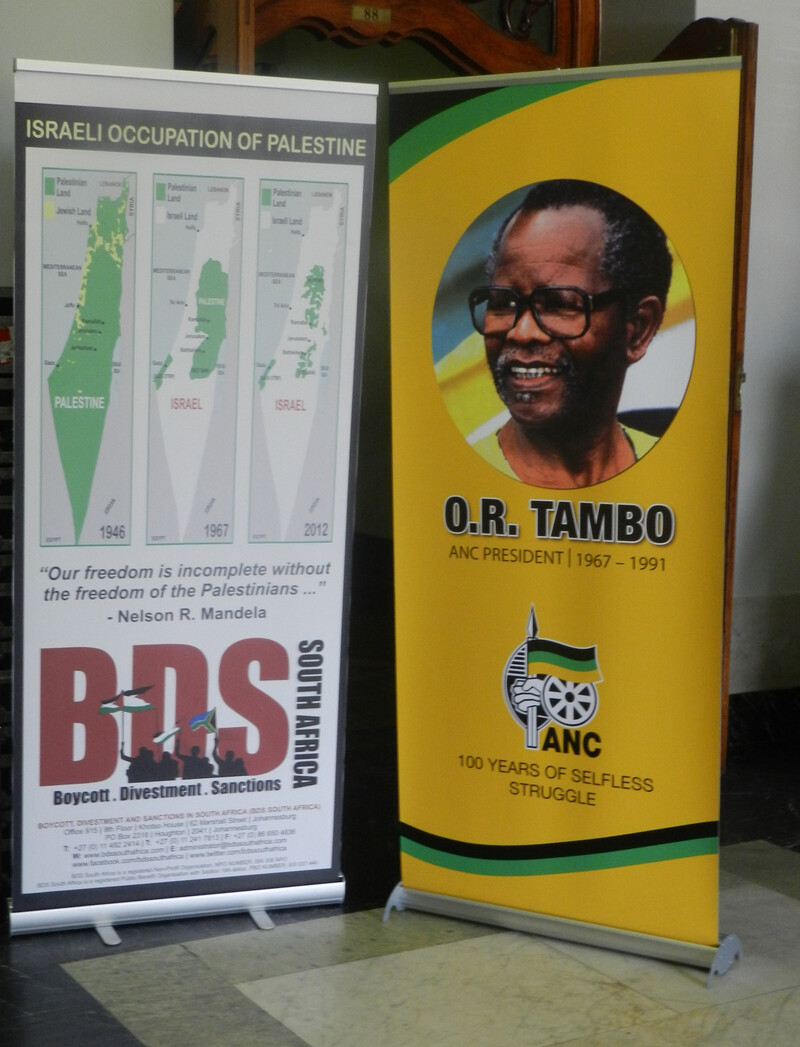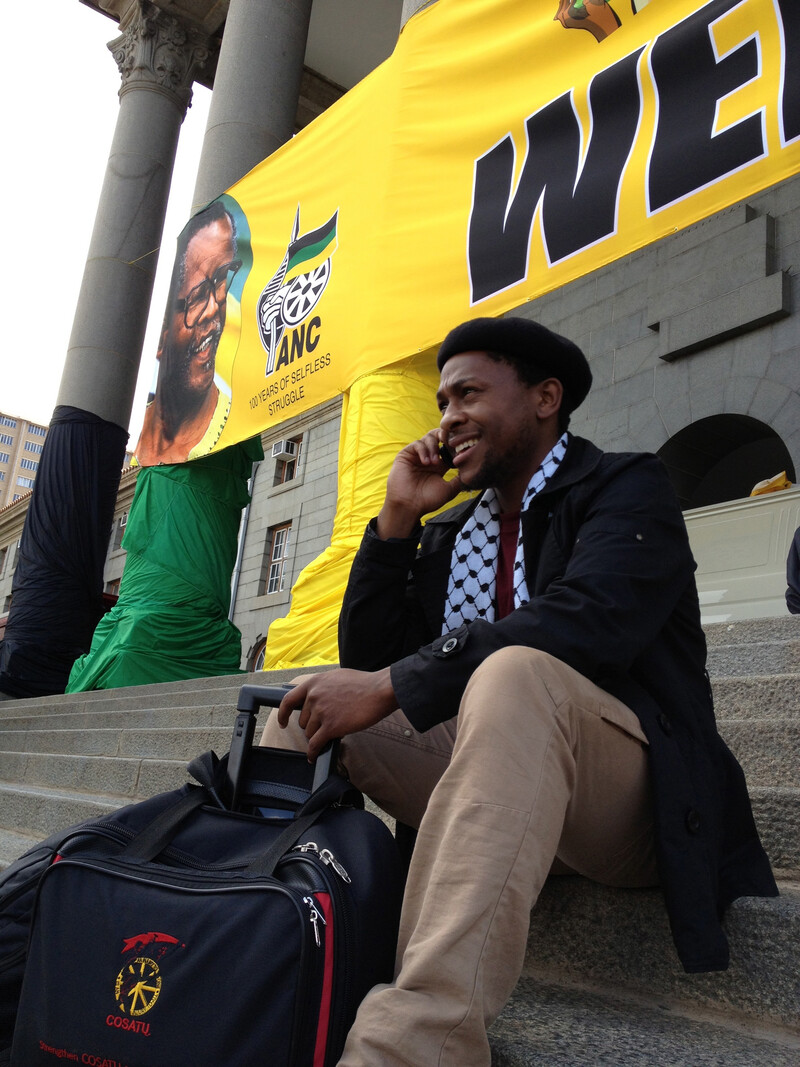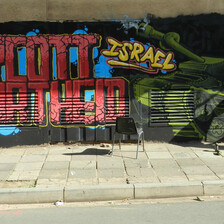The Electronic Intifada Geneva 9 November 2012

The African National Congress (ANC) is broadening its support of the Palestinian-led BDS movement.
In October, the African National Congress celebrated the legacy of its one-time leader Oliver Tambo, who helped set up a successful international anti-apartheid movement. Palestine was a hot topic at several events honoring Tambo, nine years after his death.
One such event was held at Wits University in Johannesburg. Ebrahim Ebrahim, the ANC’s head of international relations, told participants that Oliver Tambo “would travel the world engaging with students, unions, churches and other formations convincing them to divest and end their support for apartheid South Africa.”
Ebrahim added: “However, the international anti-apartheid movement and sanctions campaign was also shouldered, taken on and defended by thousands of ordinary citizens from numerous countries around the world. Today, there is a similar international civil society solidarity campaign in support of the Palestinians against Israeli policies and practices of occupation and aggression. The ANC fully supports this international movement to pressure Israel to engage with the Palestinian people to reach a just solution” (“Celebrating Oliver R Tambo: messages of support from the African National Congress,” BDS South Africa, 26 October 2012).
Ribbon Mosholi, the ANC’s international relations manager, had experienced Israeli aggression in 2010, when she led a South African delegation to the West Bank. The delegation was attacked with tear gas and sound bombs, and shoved around by Israeli police in Ramallah (“South African delegation to Palestine attacked by Israeli police,” Congress of South African Trade Unions, 10 December 2010).
“We must respond”
In her speech, Mosholi reminded a packed hall that “the Palestinians face a far more violent and inhuman situation. Palestinians have asked for our solidarity and we must respond.” She referred to the call made in 2005 by numerous Palestinian organizations for a global campaign of boycott, divestment and sanctions (BDS) against Israel.
Referring to the core message of the BDS movement, she said the aim is toward: “Ending the occupation and colonization of all Arab lands and dismantling the apartheid wall; recognizing the fundamental rights of the Arab-Palestinian citizens of Israel to full equality; and respecting, protecting and promoting the rights of Palestinian refugees to return to their homes and properties as stipulated in UN resolution 194: these are not unreasonable demands.”
PLO support

Mbuyiseni Ndlozi from BDS South Africa at the international solidarity conference in Pretoria.
The main tribute to Tambo involved the staging of an international solidarity conference in Pretoria. Its final declaration condemned the continued occupation of Palestinian territories by the Israeli government and called for a Palestinian state comprising the West Bank and Gaza, with East Jerusalem as its capital. The participants called on the UN Security Council to show leadership in halting the expansion of Israeli settlements and the harassment of Palestinians imprisoned by Israel. The conference also expressed its full support for the BDS campaign (“Tshwane Declaration,” African National Congress, 28 October 2012 [PDF]).
The conference was supported by the Congress of South African Trade Unions and the South African Communist Party, with a number of representatives from the Palestine Liberation Organization in attendance.
Significantly, the PLO went a step further than its official policy of advocating a boycott of goods produced on Israeli settlements. Hashem Dajani, a PLO representative, strongly supported the wider BDS call.
Asked about his thoughts about the progress of BDS activism, Ebrahim Ebrahim told The Electronic Intifada that “as the government of South Africa we have not advocated officially for a boycott of Israeli goods or sanctions against Israel. However, we have discouraged high profile visits to Israel unless it involves the peace process. And our government proposed that goods from settlements should be labeled correctly.
“BDS is a very powerful instrument in the hands of solidarity groups. We think this should come from civil society. It is like the anti-apartheid movement, governments had to take action as a consequence of their pressure.”
Ebrahim suggested that trade unions can refuse to handle goods going to or coming from Israel, while civil society can pressure shops and supermarkets that sell Israeli products. Students at universities and churches have a role to play, he continued, mentioning recent divestment initiatives by US churches from companies benefiting from the Israeli occupation.
“There should also be a move of activism for sanctions against Israel. Economic, academic and cultural sanctions are important. One of the biggest successes [in our anti-apartheid struggle] was the sports boycott; and South Africa was kicked out of the the rugby federation,” he added.
“Once civil society gets active it will be easier for governments to respond. They can say that our constituency demands it [action] from us. BDS will definitely make a difference in the fight for liberation of the Palestinians.”
Adri Nieuwhof is a consultant and human rights advocate based in Switzerland.





